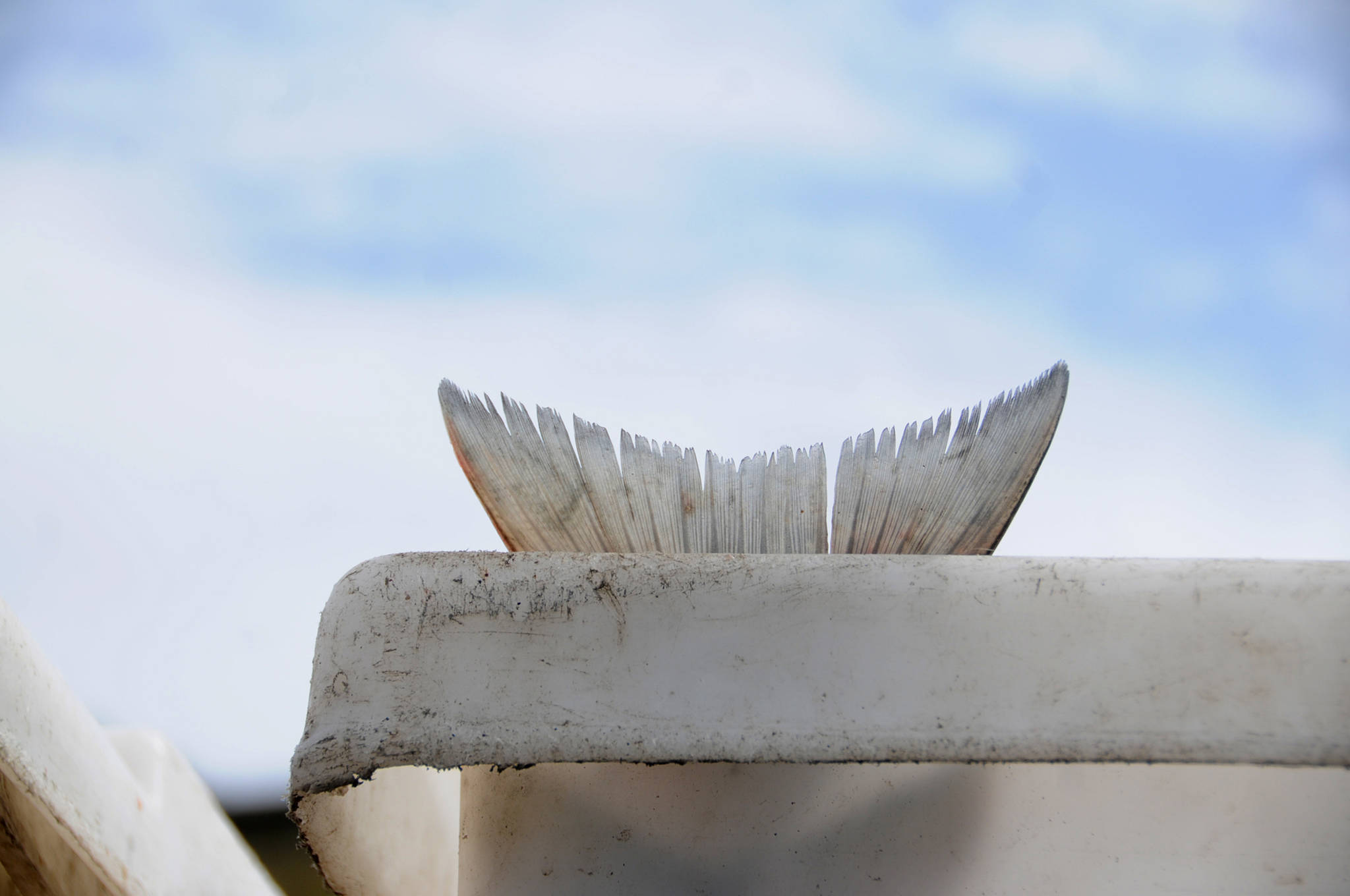The trade war between the U.S. and China is amping up for Alaska’s commercial fishermen.
In June, China announced its intentions to levy a 25 percent tariff to imported American seafood including Pacific salmon, cod, Alaska Pollock, flatfish, crab, shellfish and other common commonly exported products. The announcement came in response to a U.S. tariff hike targeted at imported Chinese products earlier this year.
The Chinese tariffs went into effect July 6, impacting imported seafood destined for consumption in China itself. Seafood shipped to China that is intended for re-export after processing, either to the U.S. or elsewhere in the world, is exempt from the increased tariff.
However, a few days later, on July 10, the U.S. Trade Representative proposed a return shot to China by increasing tariffs on products imported from China, including on seafood items. A few weeks after that, on Aug. 1, the U.S. Trade Representative proposed increasing the proposed tariffs from 10 percent to 25 percent. Seafood products are included on the list of items.
The Alaska Seafood Marketing Institute, a public-private marketing organization promoting Alaska’s seafood industry, has responded to these tariff announcements with disappointment. China is Alaska’s largest seafood trading partner, both for domestic consumption and for reprocessing. The organization is encouraging industry members to comment on the proposed tariffs before the deadline Sept. 6.
Negative impacts from the Chinese tariffs are already showing up in the market, the Alaska Seafood Marketing Institute wrote in a statement on its website.
“Tariffs will likely increase the cost of Alaska seafood products to Chinese consumers,” the statement reads. “Depending on the species, the Alaska seafood products may not be cost‐competitive with the additional tariff. Implementation of this tariff has already caused hiccups, delays, and order cancellations. If the tariff stays in place, it could impact demand in China for Alaska seafood products. It could impact consumer sentiment toward U.S. products and China may seek other suppliers.”
One item not initially included the tariffs that will have a significant impact is fishmeal. Alaska exports about $70 million of it to China every year, said Garrett Evridge, a seafood industry economist with the McDowell Group.
“A lot of our fishmeal is used in aquaculture in China,” he said. “To my understanding, it’s not an edible product, so it’s nearly exclusively used in that aquaculture realm.”
With the implementation of tariffs on both sides for seafood, Alaska fishermen and processors stand an increased chance of being dinged. If their fish aren’t taxed upon entering China for domestic consumption, if they are shipped back to the U.S. for consumption here, they’ll be hit with the tariffs upon reentering the country.
In recent years, many processors have switched from completing all their work in Alaska and sending out their fish to be finished in China, where the labor costs are much cheaper. That’s common for a number of resource industries in a place like Alaska, Evridge said. Processors in Alaska have had trouble finding workers in recent years, too, he said.
“That’s kind of a pattern with natural resources in Alaska,” he said. “If you have the ability to send product to somewhere else that is already established, (it can be more cost-efficient).”
The Alaska Seafood Marketing Institute estimates that about $2.7 billion in U.S. seafood is processed in China and reexported to the U.S. annually. Most of that comes from Alaska, which leads the nation in total pounds of seafood landings.
Reach Elizabeth Earl at eearl@peninsulaclarion.com.

